|
COVID-19 Emergency Response Information
Stay Safe. Stay Home. Stay Healthy.
COVID-19 Emergency Response Information at
AUCD's National Center on Disability in Public Health
AUCD News & Events
National Center on Disability in Public Health COVID-19 Resources & Town Hall
Thank you for joining AUCD’s National Center on Disability in Public Health Webinar Series on COVID-19, which reached about 2,000 attendees through the live sessions. We invite you to continue to share timely public health information on what we currently know on disability inclusion as it relates to this emerging issue.
Please save the date for our Disability in Public Health COVID-19 Town Hall on June 2, 2020 at 3:00 pm ET. This Town Hall is a virtual way to keep connecting with our Federal and general partners. We invite you to share your expertise and wisdom as you are the experts on your communities and respective areas of work! If you are interested in highlighting your efforts, please email us at [email protected].
These times are a strain for us all. Please take good care of yourself and check out CDC’s Stress and Coping tips. As one of our webinar speakers shared, “We need everyone in the disability community. We need each other.” Remember, public health is for everyone!
Public Health is for Everyone Toolkit Updates: COVID-19 Resources!
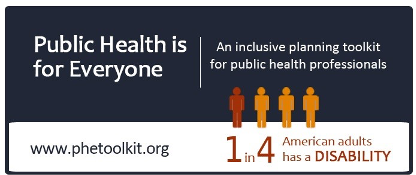 The Public Health is for Everyone Toolkit is a one-stop collection of resources on health and disability. The online toolkit serves to increase the capacity of public health professionals to create programs that benefit entire communities, including people who have disabilities. The Public Health is for Everyone Toolkit provides resources to enhance planning efforts in key issue areas such as emergency preparedness, nutrition, obesity, health care access, accessibility, and more. The Public Health is for Everyone Toolkit is a one-stop collection of resources on health and disability. The online toolkit serves to increase the capacity of public health professionals to create programs that benefit entire communities, including people who have disabilities. The Public Health is for Everyone Toolkit provides resources to enhance planning efforts in key issue areas such as emergency preparedness, nutrition, obesity, health care access, accessibility, and more.
Visit the COVID-19 issue area of the PHEtoolkit.org to see all the newly added resources for current information and strategies for support and coping with social distanicing! You can also submit resources to be included in the toolkit here!
More Tools to Get Going!
Don't forget to access additional tools provided by the National Center on Disability in Public Health to serve as a resource in supporting the over 61 million people living in communities across the country who have a disability.
1. Including People with Disabilities: Public Health Workforce Competencies
2. Foundational Principles for Sustainable Inclusion of People with Intellectual Disability
Visit National Center Tools to Get Going!
Now Available On-Demand: COVID-19 Public Health Webinar Series
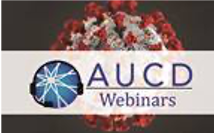 AUCD's Public Health Team conducted a 4-part webinar series, reviewing what we currently know on disability inclusion as it relates to this emerging issue. Learn about steps to prevent COVID-19 for people across the lifespan and hear advice from experts on a range of topics. Click here to Watch! AUCD's Public Health Team conducted a 4-part webinar series, reviewing what we currently know on disability inclusion as it relates to this emerging issue. Learn about steps to prevent COVID-19 for people across the lifespan and hear advice from experts on a range of topics. Click here to Watch!
Available Now: View AUCD's New Webinar Library!
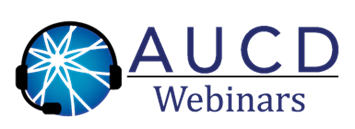 AUCD's new Webinar Library puts all AUCD-hosted webinars at your fingertips – when you want them. In this library you'll find only webinars which have been hosted by AUCD, and a convenient search function makes it easy to find the specific webinar(s) of interest. Click here to read more and watch our recent webinars! AUCD's new Webinar Library puts all AUCD-hosted webinars at your fingertips – when you want them. In this library you'll find only webinars which have been hosted by AUCD, and a convenient search function makes it easy to find the specific webinar(s) of interest. Click here to read more and watch our recent webinars!
AUCD Welcomes 5 New Learn the Signs. Act Early. Ambassadors
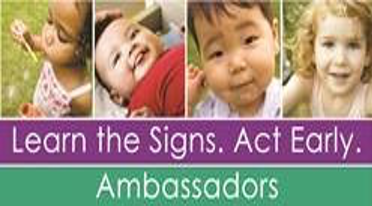 We are proud to announce five new Learn the Signs. Act Early. Ambassadors: Bridget Ratajczak (Georgia), Cari Roestel (illinois), Rachel Demma (Maryland), Rachel Nowak (New Mexico), and Devon Love (Washington)! We are proud to announce five new Learn the Signs. Act Early. Ambassadors: Bridget Ratajczak (Georgia), Cari Roestel (illinois), Rachel Demma (Maryland), Rachel Nowak (New Mexico), and Devon Love (Washington)!
Bridget Ratajczak is the Child and Family Development Supervisor for the Georgia Department of Early Care and Learning. Cari Roestel is the Nurse Case Manager and ECHO Autism Coordinator at Advocate Children's Hospital. Rachel Demma is the Early childhood System Development Director for the Maryland State Department of Education. Rachel Nowak is the New Mexico Kids Resource and Referral Project Manager for the University of New Mexico Early Childhood Services Center. Devon Love is the Vroom Integration and Help Me Grow Systems Manager for the Public Health department of Seattle & King County in Washington. Locate the Act Early Ambassador in your state!
Stories Needed About the Impact of COVID-19 on People with Disabilities
Congress is writing the next bill to respond to the needs of Americans in this crisis. In order for the needs of people with disabilities and their families to be addressed in the next bill, members need to hear about the real impacts. Often, a short personal story is helpful for them. Below are tips and tools to share your story. Continue Reading…
AUCD Offers 3 Virtual Policy Events
Are you an Emerging Leader or new to policy advocacy and education? Are you interested in talking more about what's happening in federal policy? Are you ready to connect with your Members of Congress? Check out our virtual policy event where you can learn about current legislative actions and needs for disability inclusion. Watch our virtual Hill visits examples to learn how to connect with you members of congress during this time. Continue Reading…
Social Media Update! Follow @AUCDNews and #PHis4Everyone
 AUCD is consolidating its social media presence to Hear from experts on steps to better serve and interact with followers. Effective April 2020, AUCD's National Center on Disability in Public Health, @Phis4Everyone twitter handle will no longer be active. Instead, you will now receive the same great public health news from @AUCDNews with the hashtag, #PHis4Everyone. Follow @AUCDNews on twitter and our new hashtag, #PHis4Everyone, to keep up to date on public health news from AUCD! AUCD is consolidating its social media presence to Hear from experts on steps to better serve and interact with followers. Effective April 2020, AUCD's National Center on Disability in Public Health, @Phis4Everyone twitter handle will no longer be active. Instead, you will now receive the same great public health news from @AUCDNews with the hashtag, #PHis4Everyone. Follow @AUCDNews on twitter and our new hashtag, #PHis4Everyone, to keep up to date on public health news from AUCD!
Access to Healthcare
Voices from the Network Celebrating Autism Awareness Month
 Alicia Brewer Curran, CDC's Learn the Signs. Act Early. Ambassador and Director of Operations of the Extension for Community Healthcare Outcomes (ECHO) Autism Program in Columbia, Missouri, talks about how she supports professionals and caregivers to improve their confidence in identifying and treating autism and expanding their knowledge about treatments and solutions. Continue Reading… Alicia Brewer Curran, CDC's Learn the Signs. Act Early. Ambassador and Director of Operations of the Extension for Community Healthcare Outcomes (ECHO) Autism Program in Columbia, Missouri, talks about how she supports professionals and caregivers to improve their confidence in identifying and treating autism and expanding their knowledge about treatments and solutions. Continue Reading…
Distance Learning Technology Resources: Tools for Interdisciplinary Training Programs
Technology continues to expand access to healthcare for traditionally underserved populations. So, too, can it be a tool for training professionals across multiple locations. While a number of LEND programs have successfully incorporated distance learning approaches into their curricula, others have expressed through a variety of mechanisms (needs assessments, progress reports, etc.) a desire to build their knowledge base in this area, thereby increasing their capacity to engage non-traditional trainees and those outside major metropolitan centers. This is especially salient during this time of distancing across our society. Continue Reading…
Telehealth: Health Care from the Safety of our Homes
 The HHS Health Resources and Services Administration (HRSA) is encouraging healthcare practitioners to integrate telemedicine into their practice. As part of this effort, HRSA has launched telehealth.hhs.gov as a resource for both healthcare providers and patients. It provides helpful information about telemedicine and links to tools and resources for practitioner. Click here to learn more... The HHS Health Resources and Services Administration (HRSA) is encouraging healthcare practitioners to integrate telemedicine into their practice. As part of this effort, HRSA has launched telehealth.hhs.gov as a resource for both healthcare providers and patients. It provides helpful information about telemedicine and links to tools and resources for practitioner. Click here to learn more...
A Community Health Worker's Role in Providing Care for Sickle Cell Disease Patients
Thursday, May 7, 2020 12:00 p.m. ET
The Sickle Cell Disease Association of America (SCDAA) P.O.W.E.R ECHO Project Community Health Worker Trainings are designed to assist community health workers with resources and education, in order to strengthen their efforts in providing support services for sickle cell disease (SCD) patients. P.O.W.E.R ECHO Project uses the ECHO telecommunication model to reach community health workers and by offering online training services on emerging and current topics in SCD. May 7, 12:00 pm ET via Zoom. Click here to learn more...
Developmental Monitoring
COVID-19 Resources for Birth to Five
The Early Childhood Technical Assistance Center has developed a COVID-19 webpage that houses resources for states and local programs serving young children with disabilities and their families. The webpage also contains a number of resources on tele-intervention and distance learning. Check out the new video on using family guided routines based intervention for guiding home visits, whether in-person or delivered through video conferencing. The video also provides general considerations when delivering home visits during the COVID-19 pandemic.
Autism and Developmental Disabilities Monitoring Network
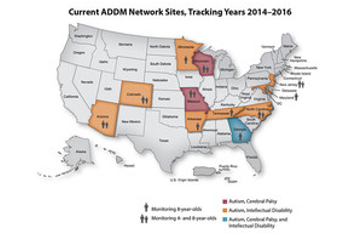 The Centers for Disease Control and Prevention’s (CDC's) Autism and Developmental Disabilities Monitoring (ADDM) Network recently released data on 4-year-old and 8-year-old children. This is the first time CDC’s ADDM Network has simultaneously reported data on 4-year-old and 8-year-old children. These data were collected in 2016. Data reported on 8-year-old children give us a more complete picture of the number and characteristics of children identified with autism spectrum disorders (ASD), while data reported on 4-year-old children tell us more about trends in the early identification of ASD. Please visit CDC's website to learn more. The Centers for Disease Control and Prevention’s (CDC's) Autism and Developmental Disabilities Monitoring (ADDM) Network recently released data on 4-year-old and 8-year-old children. This is the first time CDC’s ADDM Network has simultaneously reported data on 4-year-old and 8-year-old children. These data were collected in 2016. Data reported on 8-year-old children give us a more complete picture of the number and characteristics of children identified with autism spectrum disorders (ASD), while data reported on 4-year-old children tell us more about trends in the early identification of ASD. Please visit CDC's website to learn more.
Improvements in Screening Lead to Improved Autism Diagnoses
Thanks to efforts by CDC's Learn the Signs. Act Early. and AAP recommendations, the autism rate among 8-year-olds increased to one in 54 as screening improved, according to a new report from the Centers for Disease Control and Prevention (CDC). Kristin Sohl, M.D., FAAP, a member of the AAP Council on Children with Disabilities Autism Subcommittee, applauded improvements in screening to reduce disparities and said early diagnosis is “vital for a child’s development. Continue Reading…
Emergency Preparedness
Upcoming Webinar: COVID-19 and the UCEDD, Responses Across the Network
Thursday, May 7, 2020 12:00 p.m. - 1:30 p.m. ET
 The AUCD Emergency Preparedness SIG and the Community Education and Dissemination Council (CEDC) are hosting a network sharing of products, resources, programs, and services that UCEDDs have developed in response to the COVID-19 pandemic to support people with disabilities and disability-related organizations.Join us on Thursday, May 7, 2020, 12:00 p.m. - 1:30 p.m. ET. Register Today! The AUCD Emergency Preparedness SIG and the Community Education and Dissemination Council (CEDC) are hosting a network sharing of products, resources, programs, and services that UCEDDs have developed in response to the COVID-19 pandemic to support people with disabilities and disability-related organizations.Join us on Thursday, May 7, 2020, 12:00 p.m. - 1:30 p.m. ET. Register Today!
Rapid Response Webinars from Public Health Partners

The "COVID-19 Conversations" series of rapid-response webinars from the National Academy of Medicine and the American Public Health Association is addressing the state of the science on COVID--19 and explore emerging evidence on how to best mitigate its impact. The webinars focused on social distancing, emerging evidence on spread and treatment, crisis standards of care, and COVID-19 Testing: Possibilities, Challenges, and Ensuring Equity. Watch free recordings here…
Whole-of-America Response
 FEMA, HHS and federal partners are working with state, local, tribal and territorial governments to execute a whole-of-America response to the COVID-19 pandemic to protect the health and safety of the American people. Click here for more information and resources. FEMA, HHS and federal partners are working with state, local, tribal and territorial governments to execute a whole-of-America response to the COVID-19 pandemic to protect the health and safety of the American people. Click here for more information and resources.
COVID-19 in Racial and Ethnic Minority Groups
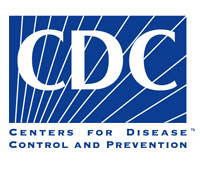 The effects of COVID-19 on the health of racial and ethnic minority groups is still emerging; however, current data suggest a disproportionate burden of illness and death among racial and ethnic minority groups. Studies are underway to confirm these data and understand and potentially reduce the impact of COVID-19 on the health of racial and ethnic minorities. Continue Reading… The effects of COVID-19 on the health of racial and ethnic minority groups is still emerging; however, current data suggest a disproportionate burden of illness and death among racial and ethnic minority groups. Studies are underway to confirm these data and understand and potentially reduce the impact of COVID-19 on the health of racial and ethnic minorities. Continue Reading…
COVID-19 in Guidance for Institutes of Higher Education
 Institutions of Higher Education (IHE), working together with local health departments, have an important role in slowing the spread of diseases, and protecting vulnerable students, staff, and faculty to help ensure a safe and healthy learning environment. Strategic plans should be implemented to plan, prepare and respond to COVID-19. Continue Reading… Institutions of Higher Education (IHE), working together with local health departments, have an important role in slowing the spread of diseases, and protecting vulnerable students, staff, and faculty to help ensure a safe and healthy learning environment. Strategic plans should be implemented to plan, prepare and respond to COVID-19. Continue Reading…
Nutrition and Healthy Weight
Let's #AdaptatHome Together! Disabled Sports USA Encourages You to Be Safe, Be Active, and Be Connected.
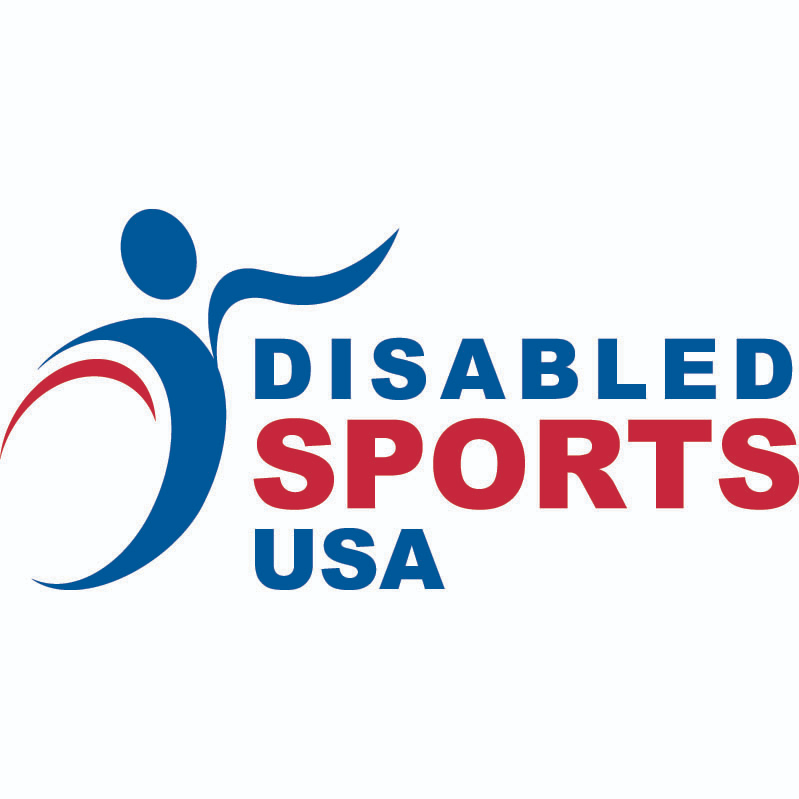 During these unusual times, it’s more important than ever that we are SAFE, CONNECTED, and physically ACTIVE. Disabled Sports USA is committed to helping you do that. Check out the numerous free live and on demand adaptive exercise and fitness classes to participate in! Continue Reading… During these unusual times, it’s more important than ever that we are SAFE, CONNECTED, and physically ACTIVE. Disabled Sports USA is committed to helping you do that. Check out the numerous free live and on demand adaptive exercise and fitness classes to participate in! Continue Reading…
Resources from National Minority Health Month 2020
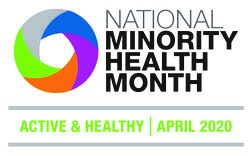 April was National Minority Health Month, and the HHS Office of Minority Health (OMH) would like to encourage everybody to stay #ActiveandHealthy throughout the year by continuing to take steps to stay active and support physical, mental and emotional wellness in and around the home. April was National Minority Health Month, and the HHS Office of Minority Health (OMH) would like to encourage everybody to stay #ActiveandHealthy throughout the year by continuing to take steps to stay active and support physical, mental and emotional wellness in and around the home.
Visit the OMH #NMHM2020 website to access resources from the Move Your Way campaign and the MyPlate initiative to gain helpful tips to plan your activities and create healthier eating habits to improve your overall health.
Sexual and Reproductive Health
Upcoming Webinar: Maintaining Relationship Status: An Open Discussion
Wednesday, May 13, 2020 2:00 p.m. - 3:00 p.m. ET
 Join the AUCD Sexual Health SIG for an open discussion to talk about ways to maintain relationships while social distancing. This conversation will begin with a discussion of potential ideas and strategies to help individuals connect during this time. Attendees are encouraged to share and discuss challenges faced along with successful tips and strategies used in their communities. Read more and Register here! Join the AUCD Sexual Health SIG for an open discussion to talk about ways to maintain relationships while social distancing. This conversation will begin with a discussion of potential ideas and strategies to help individuals connect during this time. Attendees are encouraged to share and discuss challenges faced along with successful tips and strategies used in their communities. Read more and Register here!
Age Appropriate Info on Puberty for Tweens and Their Parents
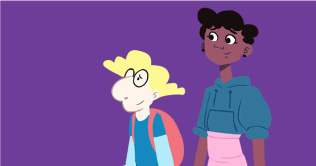 AMAZE takes the awkward out of sex ed. Real info in fun, animated videos that give you all the answers you actually want to know about sex, your body and relationships. Continue Reading… AMAZE takes the awkward out of sex ed. Real info in fun, animated videos that give you all the answers you actually want to know about sex, your body and relationships. Continue Reading…
Sexual and Gender Minorities with Autism Spectrum Disorder May Face Challenges to Getting Needed Healthcare
Autism spectrum disorder (ASD) is a developmental disability that affects how people communicate and process information. Recent studies have shown that a significant number of adults with ASD identify as being lesbian, gay, bisexual, transgender, or queer (LGBTQ+). Research has also shown that both adults with ASD and adults who are LGBTQ+ may have trouble accessing needed healthcare services, and people with both identities may have particular difficulty developing good working relationships with doctors. In a recent NIDILRR-funded study, researchers looked at the healthcare experiences of adults with ASD who identified as LGBTQ+. Continue Reading…
Wellness and Mental Health
Supporting Children with Autism through Uncertain Times
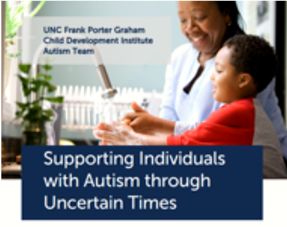 The ED-funded Autism Focused Intervention Resources & Modules (AFIRM) at the University of North Carolina Frank Porter Graham Child Development Institute recently published Supporting Individuals with Autism through Uncertain Times. This toolkit provides seven strategies that are designed to meet the unique needs of individuals with autism during this period of uncertainty. In addition, examples and ready-made resources are included to help caregivers implement these strategies quickly and easily. The ED-funded Autism Focused Intervention Resources & Modules (AFIRM) at the University of North Carolina Frank Porter Graham Child Development Institute recently published Supporting Individuals with Autism through Uncertain Times. This toolkit provides seven strategies that are designed to meet the unique needs of individuals with autism during this period of uncertainty. In addition, examples and ready-made resources are included to help caregivers implement these strategies quickly and easily.
Social Stories – A Safe and Meaningful Exchange of Information
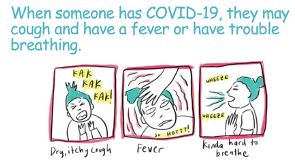 "A Social Story accurately describes a context, skill, achievement, or concept according to 10 defining criteria. These criteria guide Story research, development, and implementation to ensure an overall patient and supportive quality, and a format, “voice”, content, and learning experience that is descriptive, meaningful, and physically, socially, and emotionally safe for the child, adolescent, or adult with autism." Click here to learn more and see examples! "A Social Story accurately describes a context, skill, achievement, or concept according to 10 defining criteria. These criteria guide Story research, development, and implementation to ensure an overall patient and supportive quality, and a format, “voice”, content, and learning experience that is descriptive, meaningful, and physically, socially, and emotionally safe for the child, adolescent, or adult with autism." Click here to learn more and see examples!
Forbes Article: Mental Health and Disability Inclusion: How to Make Sure You Are Commissioning Credible Support Services for Your Business
"In considering disability inclusion and mental health support advice, I have observed a proliferation of offers from people who are currently displaced from their usual activities. It is a buyers’ market for these services, but we should exercise caution when we commission. Not all mental health consultants have the right skills for dealing with serious trauma. Experts by experience can’t necessarily navigate the tricky legal boundaries of “reasonable” in disability support and we will need a broad spectrum of expertise to think through how different working practices affect different disabilities and conditions." Continue Reading…
May is Mental Health Month
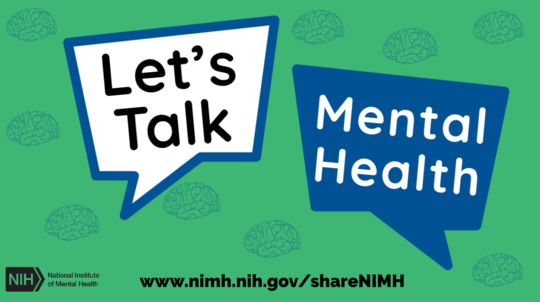
Taking care of our mental health is now more important than ever. During Mental Health Month in May, help NIMH raise awareness about mental health in your community by using these free education and outreach materials to spread the word. NIMH encourages you to use the hashtag #shareNIMH in your social media posts to connect with people and organizations with similar goals. Continue Reading…
Children's Mental Health Awareness Week (May 3-9)
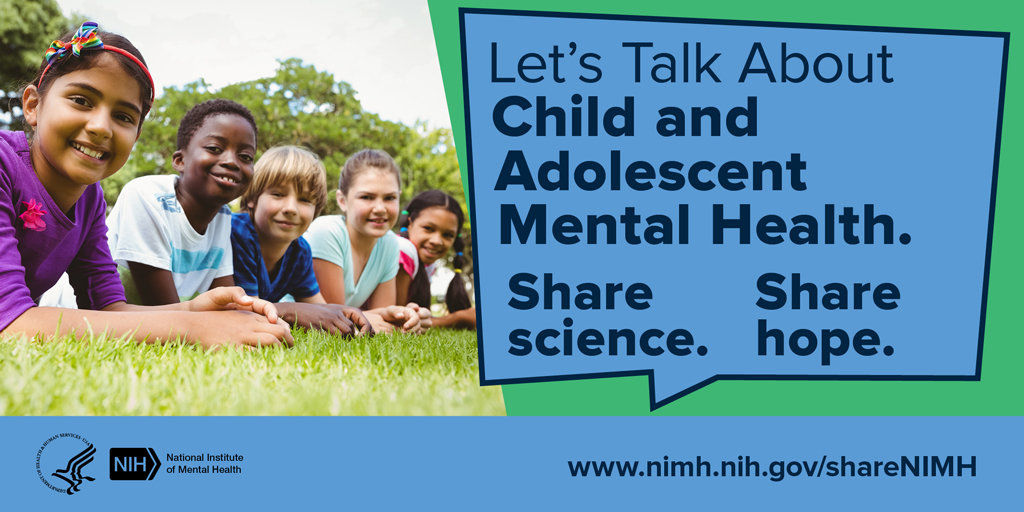
In recognition of Children's Mental Health Awareness Week, use these resources from NIMH to help raise awareness about the importance of child and adolescent mental health. Share science. Share hope. Continue Reading…
May 2020 is Older Americans Month
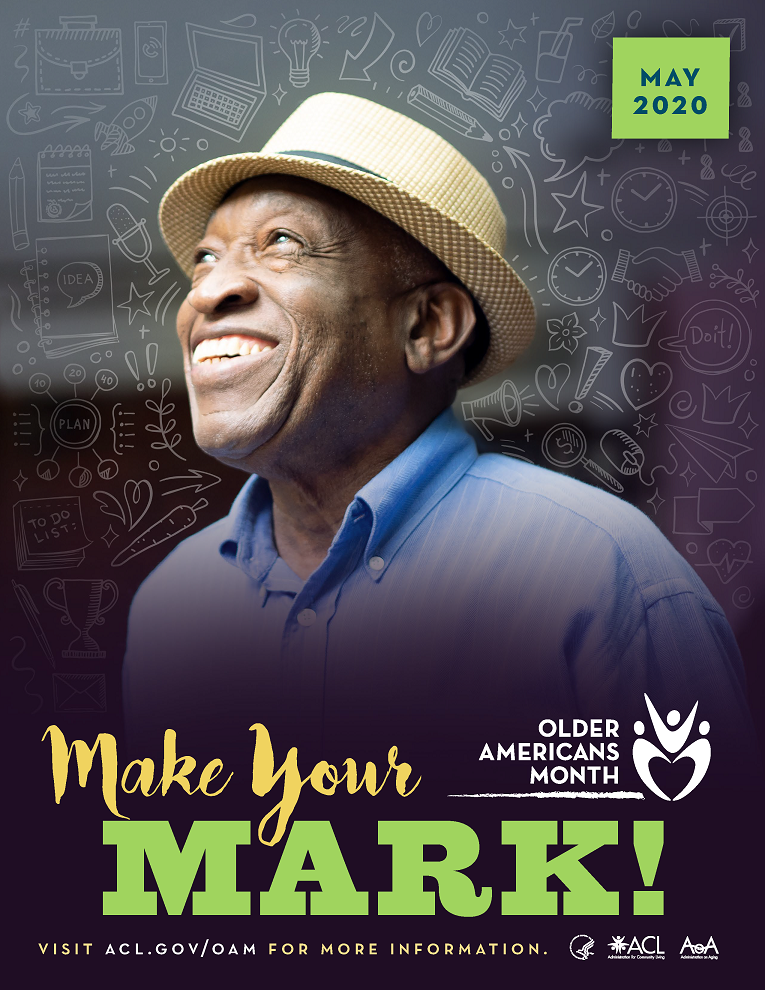 May 2020 is Older Americans Month, sponsored by the Administration for Community Living (ACL). This year's theme is "Make Your Mark", selected to encourage and celebrate the countless contributions that older adults make to communities. ACL has also published materials, activity ideas, and resources for social media. May 2020 is Older Americans Month, sponsored by the Administration for Community Living (ACL). This year's theme is "Make Your Mark", selected to encourage and celebrate the countless contributions that older adults make to communities. ACL has also published materials, activity ideas, and resources for social media.
Other Resources
Learn the Best Ways to Communicate a Health Risk and Make Clear Recommendations During a Health Emergency
 Communicating health risks can be challenging, especially when an emergency is at hand. When you create health messages, tell people upfront what they can do to protect their health during high risk situations. People can make informed health decisions when they understand the cause and effect associated with a risk. During times like now, make sure you are especially mindful of the needs and sensibilities of your audience.The CDC Clear Communication Index recommends that you state clearly the threat or harm and how and why people may be affected. For more information on how to communicate health risks (Part D) and how to make clear recommendations during a health emergency (Part B) please visit the CDC Clear Communication Index. The CDC Clear Communication Index is a research-based tool that helps you develop and assess communication materials for your intended audience. Communicating health risks can be challenging, especially when an emergency is at hand. When you create health messages, tell people upfront what they can do to protect their health during high risk situations. People can make informed health decisions when they understand the cause and effect associated with a risk. During times like now, make sure you are especially mindful of the needs and sensibilities of your audience.The CDC Clear Communication Index recommends that you state clearly the threat or harm and how and why people may be affected. For more information on how to communicate health risks (Part D) and how to make clear recommendations during a health emergency (Part B) please visit the CDC Clear Communication Index. The CDC Clear Communication Index is a research-based tool that helps you develop and assess communication materials for your intended audience.
|
